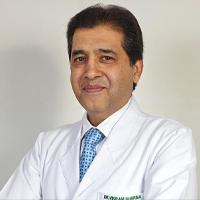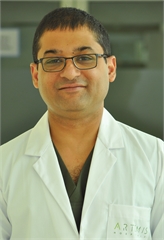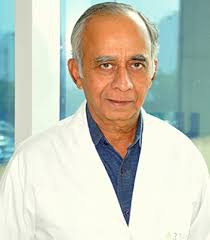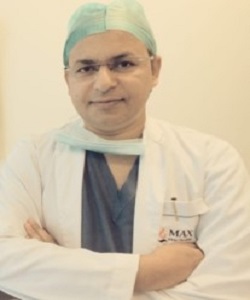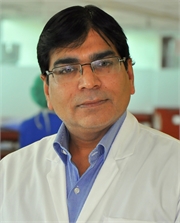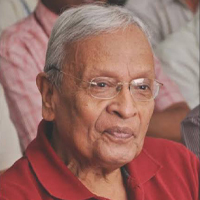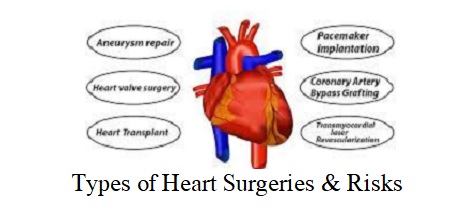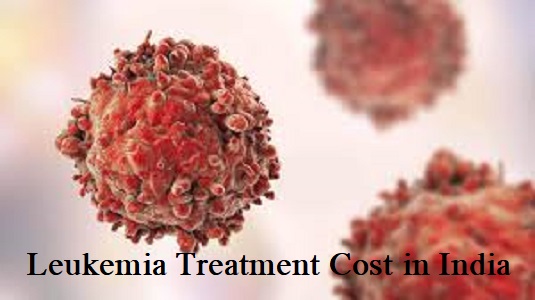
Prostate cancer is a type of cancer that arises in the prostate gland. The prostate is a tiny gland in boys and men, about the size of a small nut. The prostate is situated below the bladder, which is the hollow organ responsible for storing urine, and it is positioned in front of the rectum, which is the final part of the intestines.
Free Consultation: For Consultation, Send Us Your Medical Reports By WhatsApp at +91-9643 443 814Get Free Treatment Plan From Top Hospital
Attach Medical Report
Prostate Cancer: Symptoms, Causes, Types, & Treatment, Cost and Recovery
Prostate cancer is a type of cancer that arises in the prostate gland. The prostate is a tiny gland in boys and men, about the size of a small nut. The prostate is situated below the bladder, which is the hollow organ responsible for storing urine, and it is positioned in front of the rectum, which is the final part of the intestines. If you want know more about prostate cancer treatment the go ahead.
This gland is a super important part of the male reproductive system as it helps make a special fluid called seminal fluid which helps the sperm stay healthy and transport sperm during ejaculation.
The prostate wraps around a tube called the urethra, which is like a passage for both urine and sperm out of the body.
Because of where it is located, if anything goes wrong with the prostate, it can mess up urinary and sexual function in men.
Prostate cancer happens when some cells in the prostate start growing too much and makes a lump or a tumor. Some cancers grow slowly and aren’t very dangerous, but others can be wild and spread to other parts of the body, which can be very serious to health.
Types of Prostate Cancer
The two types of prostate cancer are:
- Adenocarcinoma (The Most Common Type):The most frequent type of prostate cancer is adenocarcinoma, which arises in the prostate gland cells. These cells produce the fluid that keeps sperm nourished. Most adenocarcinoma’s develop slowly, and doctors have effective treatments for them. However, it is important to examine them frequently to ensure that they do not worsen and cause difficulties.
- Rare Types (Small Cell Carcinoma and More): Rareprostate cancer types differ from adenocarcinoma and may require alternative treatments. These include:
- small cell carcinomas
- transitional cell carcinomas
- neuroendocrine tumors
- sarcomas
Signs and Symptoms of Prostate Cancer
Prostate cancer poses significant health risks for men as they age. Recognizing prostate cancer signs and symptoms is equally important.
Early-stage prostate cancer rarely causes symptoms. As the condition advances, the following problems may arise:
- Changes in Urination:
- Urination regularly, especially at night
- Having trouble starting or stopping urination
- Insufficient or weak urine flow
- pain or discomfort during urination
- Unexplained Weight Loss
- Fatigue and weakness
- Bowel Changes(constipation or diarrhea)
- Blood in urine
- Blood in semen
- Painful ejaculation
- Erectile Dysfunction: Inability to obtain or sustain an erection for sexual activity; a prevalent problem affecting men’s sexual health and performance.
Diagnosis of Prostate Cancer
Because prostate cancer does not produce noticeable symptoms in its early stages, regular screenings are important.
- Screening: The most common screening methods include:
- Digital Rectal Examination (DRE): The doctor examines the prostate using a gloved finger for any abnormalities or lumps.
- Prostate-Specific Antigen (PSA) Test: PSA test measures prostate protein levels. Higher prostate levels may indicate potential prostate cancer.
- Confirmatory Tests: If the screening results raise the possibility of prostate cancer, other tests are performed to confirm the diagnosis.
- Transrectal Ultrasound (TRUS): An ultrasound probe is placed into the rectum to produce images of the prostate that can be used to diagnose problems.
- Prostate Biopsy: A biopsy is conducted to confirm the existence of cancer in the prostate by extracting tissue samples for laboratory analysis.
- Imaging Tests: Imaging tests determine the stage, extent, and spread of prostate cancer, exposing the spread of prostate cancer to other areas of the body.
- Gleason Score: Biopsy samples receive a Gleason score, ranging from 6 to 10, that indicates how aggressive the cancer cells are and help determine the best course of treatment.
- Staging: Prostate cancer can affect the prostate gland locally, invade surrounding structures regionally, or spread to other organs through metastasis. Common sites include lymph nodes and bones, but other organs may also develop prostate cancer.
Options for Prostate Cancer Treatment in India
The prostate cancer treatment plan will be based on factors like your health, cancer spread, and its rate of progression. Different specialists, like urologists, radiation oncologists, and medical oncologists, may be involved. Prostate cancers caught early are often treatable and curable.
- Close supervision: Sometimes doctors only want to keep an eye on the cancer instead of rushing into therapy. It’s like keeping an eye on a little problem to see whether it grows larger. Regular check-ups, PSA tests, and physical exams are used to track cancer growth.
- Surgery (Radical Prostatectomy): The prostate gland and surrounding tissues where the cancer is found are removed during surgery. Radical prostatectomy is a common surgical technique for localized prostate cancer.
The main types of Radical Prostatectomy include:
- Open Surgery: Classic method with a big cut to take out cancer.
- Laparoscopic Surgery: Minimally invasive approach with smaller cuts and a tiny camera for accurate visuals.
- Robotic-Assisted Surgery: The robot assists surgeons in performing delicate surgery movements.
- Goal: Removing cancer to preserve urinary and sexual abilities.
- Radiation Therapy: High-energy rays are used in radiation therapy to destroy cancer cells.
- External Beam Radiation (EBRT): This non-invasive therapy directs radiation from outside the body to the prostate gland. Quick, painless sessions are performed over several weeks to allow rays time to work effectively.
- Brachytherapy: Brachytherapy, also known as internal radiation therapy, includes the placement of radioactive seeds near the prostate gland to provide high doses of radiation to tumors while minimizing exposure to healthy tissues.
- Hormone Therapy: Hormone therapy targets androgen production to stop prostate cancer cell growth, which is commonly used in advanced or aggressive cases, with medications or injections.
- Chemotherapy: Chemotherapy is the use of powerful drugs to kill or stop cancer growth, specifically for advanced prostate cancer.
- Immunotherapy: Immunotherapy uses the body’s immune system to locate and fight cancer cells. This innovative therapeutic approach enhances the body’s natural anti-cancer defenses.
- Targeted Therapy: Targeted therapy aims to target specific cancer genes or proteins to disrupt growth and enhance treatment outcomes.
Risks and Complications in Prostate Cancer Treatment
It’s important to be aware of the potential risks and complications associated with each method, even though there are many treatment options available.
- Infection: There is a possibility of infection at the incision site or in the urinary tract during any surgical process, which may need antibiotic treatment.
- Urinary Incontinence: Some patients may develop acute or permanent urine incontinence as a result of sphincter injury during surgery.
- Erectile Dysfunction: Nerves and blood vessels that are essential for erections can be damaged by surgery, leading to erectile dysfunction
- Bowel Issues: The rectum can become inflamed during surgery, resulting in bowel problems such as diarrhea, rectal bleeding, and discomfort.
- Cardiovascular Complications: It has been suggested by some studies that long-term therapy may increase the risk of cardiovascular problems.
- Sexual Side Effects: Therapy can result in a decrease in libido and erectile dysfunction.
- Immune-related side effects: Immunotherapy may cause immune-related side effects, such as inflammation of various organs, skin rash, or diarrhea.
Recovery after Prostate Cancer Treatment
Recovery after prostate cancer therapy is a complicated process that includes physical healing, emotional endurance, and lifestyle changes.
Patients should seek support from healthcare providers, and loved ones, and must have a positive mindset. If you do the following, you can lower your risk of prostate cancer:
- Eat a healthy diet, high in fruits and vegetables.
- Choose natural foods over supplements.
- Exercise regularly throughout the week.
- Keep your weight in check.
Prostate cancer poses significant health risks for men as they age. Recognizing prostate cancer signs and symptoms is equally important.
Early-stage prostate cancer rarely causes symptoms. As the condition advances, the following problems may arise:
- Changes in Urination:
- Urination regularly, especially at night
- Having trouble starting or stopping urination
- Insufficient or weak urine flow
- pain or discomfort during urination
- Unexplained Weight Loss
- Fatigue and weakness
- Bowel Changes(constipation or diarrhea)
- Blood in urine
- Blood in semen
- Painful ejaculation
- Erectile Dysfunction: Inability to obtain or sustain an erection for sexual activity; a prevalent problem affecting men’s sexual health and performance.

Top Prostate Cancer Doctors in India

Best Prostate Cancer Hospitals in India
Book An Appointment for Prostate Cancer Treatment

Get Free Treatment Plan From Top Hospital
Attach Medical Report

Cost of Prostate Cancer Treatment in India

Success Rate of Prostate Cancer Treatment in India
Contact Form
Attach Medical Report
Top Doctors & Surgeons in India
Why Choose Us

Personalized Care
24x7 Supports
Top NABH and JCI accredited Hospitals
Free Cost Estimation & Medical Opinion from Specialist
Get Free Tele/Video Consultation
Visa and Traveling Assistance
Post-surgery with Assistance in Follow-ups

